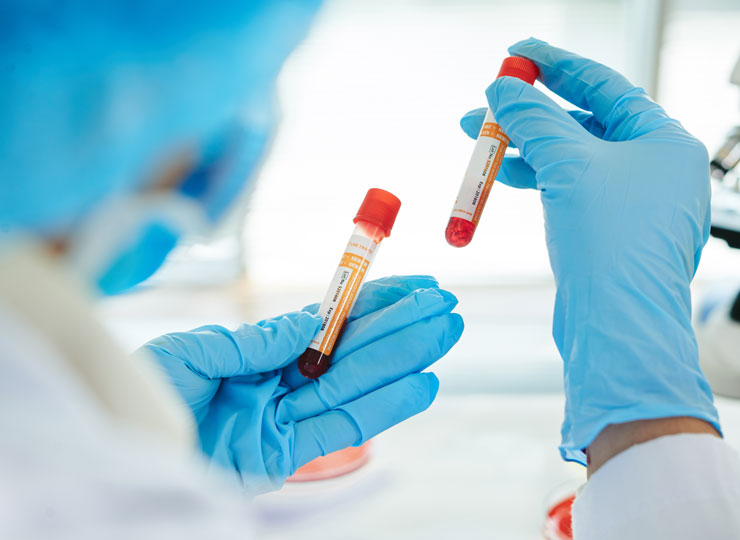
October 2, 2019
A blood test to detect Alzheimer’s disease before symptoms appear is growing closer, researchers report. The test detects the toxic protein beta-amyloid, which begins to build up in the brain decades before memory loss becomes apparent.
The test measures levels of beta-amyloid in the blood to predict the buildup of the toxic protein in the brain. When combined with a person’s age and the presence of APOE-E4, a gene that increases the risk of developing Alzheimer’s disease, the test can identify Alzheimer’s at its earlier stages with 94 percent accuracy. That is more accurate than the PET brain scans that are currently considered the gold standard for diagnosing the illness. Identifying Alzheimer’s at an early stage, when damage to the brain has not become as extensive, may be important for developing effective new treatments, experts say.
“Right now we screen people for clinical trials with brain scans, which is time-consuming and expensive, and enrolling participants takes years,” said Dr. Randall J. Bateman, the senior author of the study and a professor of neurology at Washington University School of Medicine in St. Louis. “But with a blood test, we could potentially screen thousands of people a month. That means we can more efficiently enroll participants in clinical trials, which will help us find treatments faster, and could have an enormous impact on the cost of the disease as well as the human suffering that goes with it.”
Current drugs to treat Alzheimer’s disease may ease symptoms for a time but do not thwart the downward progression of disease. Detecting Alzheimer’s at an early stage, before damage to the brain becomes extensive, could allow doctors to test new drugs that slow or halt progression of the disease. The findings were published in the journal Neurology.
Such a test may become available at doctors’ offices within a few years, the researchers say. Blood tests are easy to interpret and cost a few hundred dollars, far less than PET scans, which cost $4,000 or more and require time and expertise for analyzing them.
For the study, researchers studied 158 adults, most in their 60s and 70s. All but 10 were cognitively normal. Each provided at least one blood sample and underwent one PET brain scan, considered the gold standard test for detecting beta-amyloid buildup in the brain.
They found that the blood test was accurate 88 percent of the time in detecting the buildup of beta-amyloid. To improve accuracy, they looked at test results in light of other risk factors for Alzheimer’s disease. Age is the largest known risk factor. After age 65, the chance of developing Alzheimer’s disease doubles every five years. Carrying the APOE-E4 gene also raises the risk of developing Alzheimer’s three- to fivefold.
When the researchers included these risk factors in the analysis, they found that age and APOE-E4 status raised the accuracy of the blood test to 94 percent.
The test is not conclusive. Many older people have beta-amyloid buildup in their brains and do not develop Alzheimer’s disease. And a diagnosis of Alzheimer’s disease can often not be conclusively demonstrated until after death.
But experts increasingly believe that Alzheimer’s treatment needs to begin as early as possible, before memory loss and other symptoms arise. By the time people become forgetful, their brains are so severely damaged no therapy is likely to fully heal them. Detecting Alzheimer’s at the earliest stages may offer the best hope for delivering effective treatments.
By ALZinfo.org, The Alzheimer’s Information Site. Reviewed by Marc Flajolet, Ph.D., Fisher Center for Alzheimer’s Research Foundation at The Rockefeller University.
Source: Suzanne E. Schindler, James G. Bollinger, Vitaliy Ovod, et al: “High-precision plasma β-amyloid 42/40 predicts current and future brain amyloidosis.” Neurology, August 1, 2019











